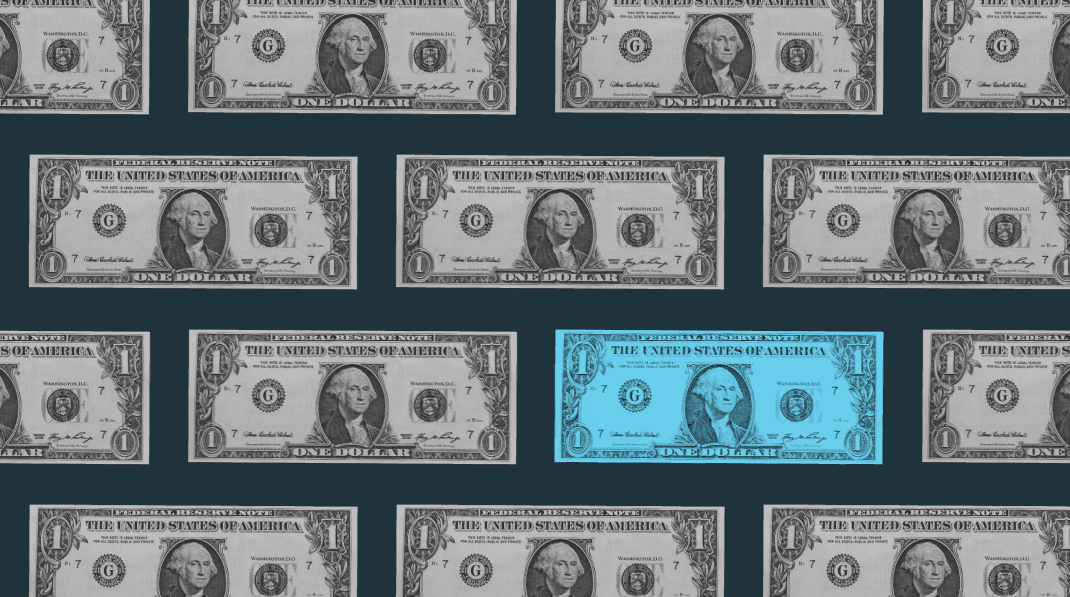Mar 02, 2018
Trump’s Tariffs on Aluminum and Steel, What’s the Big Deal?
Politics and economic policy often have dramatic consequences for the stock market.

Politics and economic policy can often have dramatic consequences for the stock market.
That’s a leading reason why this week, after President Trump announced new tariffs on steel and aluminum, major indexes fell in reaction to the news.
The Dow Jones Industrial Average dropped 420 points on Thursday, and was down more than 300 points in late morning trading Friday. Similarly, the S&P 500 and the tech-heavy Nasdaq each fell more than 1% on Thursday, and both indexes continued their slide on Friday in morning trading.
Fears of an extended trade war–where other countries could retaliate by slapping tariffs of their own on U.S.-made steel and aluminum, rattled investors and the larger markets.
So what are tariffs and trade wars, and how do they relate to the stock market?
Let’s break it down.
What’s a tariff?
Trump has proposed putting a tariff of 25% on foreign steel, and one of 10% on aluminum imports, according to reports.
A tariff, sometimes called a duty, is a tax typically imposed by one nation on another’s imports. (In some cases, tariffs can be levied on exports.) The tariff is generally calculated as percentage of the import’s total value, including freight and insurance charges.
In principle, governments impose tariffs to make their own products more competitive and affordable, and to generate revenues.
Think of it this way: The additional taxes imposed will make it more expensive for U.S. companies to buy foreign steel, so they may instead turn to steel made by U.S.-based manufacturers. And if they do buy the more expensive foreign product, the tariff adds to U.S. coffers.
What’s a trade war?
A trade war is when countries engage in a tit-for-tat over tariffs. In response to U.S. tariffs on foreign steel and aluminum, countries such as China, the largest steel producer in the world, could impose tariffs of their own on U.S. steel, as well as our other exports.
That could reduce demand for U.S. exports, which could dent our economy.
In fact, leaders from various countries and trading blocs have already weighed in, suggesting they might do just that.
“The United States must know that if these unilateral decisions were to be maintained and confirmed, they would lead to a strong, coordinated and united answer from the European Union,” Bruno Le Maire, France’s minister of finance, told USA Today.
Chinese leaders have reportedly said they’d do what they need to protect their own markets, and have hinted they might retaliate further by putting tariffs on other U.S. products, such as our exports of soybeans, which totaled about $12.4 billion in 2017, according to reports.
Yet other countries from Canada to Mexico have also voiced concerns.
“Should restrictions be imposed on Canadian steel and aluminum products, Canada will take responsive measures to defend its trade interests and workers,” Foreign Minister Chrystia Freeland told Reuters in a statement.
Canada is the largest supplier of aluminum and steel to the U.S., and also purchases more than half of its steel from the U.S.
Steel and aluminum are in everything
Soda and beer cans, electrical components for smartphones, automobiles, building construction materials, and paper clips–you can’t go far without encountering aluminum and steel. Both materials are in most everything we use every day.
And executives from some of the leading business councils in the U.S. weighed in about the potential impact of the new tariffs, with some expressing fears that the duties will increase the costs of manufacturing.
“President Trump shouldn’t undercut his own goal of helping U.S. manufacturers win again by imposing counterproductive tariffs on steel imports,” The Association of Equipment Manufacturers said in a statement.
Similarly, Molly Day, vice president of the National Small Business Association, told CNBC:
“This kind of tariff, while seemingly targeted, could have widespread implications and likely will result in increased prices of many goods,” said Day.
Why did the stock market fall?
Perhaps the most potent force in the stock market in recent weeks has been the fear of inflation. Signs of inflation caused major indexes to experience corrections in February, resulting in losses of at least 10%.
And the tariffs could potentially increase costs for U.S. businesses, according to reports, which could cause an uptick in inflation, as businesses raise prices to cope. When inflation rises, the Federal Reserve, the nation’s central bank responsible for setting monetary policy, usually responds by increasing interest rates to combat it.
Higher interest rates, in turn, can make it more expensive for businesses to operate, which can put further pressure on stock prices.
More background
Trump ran on an “America First” platform, which aims to advance the interests of U.S. manufacturers, in part by withdrawing from trade treaties.
Over the last 20 years, the U.S. has entered into numerous trade treaties, the most famous of which is perhaps the North American Free Trade Agreement (NAFTA). These treaties, which are complex multilateral agreements that favor negotiations between all countries that sign, have reduced the threat of trade wars by eliminating many tariffs on exported and imported products.
Trump has argued such agreements have flooded the U.S. with cheaper foreign-made goods, which make it difficult for U.S. manufacturers to compete.
And this isn’t the first time the Trump administration has moved to impose tariffs. In January, it approved steep tariffs on imported solar panels and washing machines.
The move followed a push by domestic manufacturers of both products to get U.S. trade officials to impose taxes on imports, as a way to protect them from international competitors.
China is the largest manufacturer of solar components in the world, and its prices are generally far cheaper than those for American products. American manufacturers of solar products have said a flood of imports from China has hampered their ability to manufacture.
Related articles

financial-news
Apr 07, 2025
Investing During Volatile Times

financial-news
Apr 03, 2025
How to Stay the Course Through Tariffs and Turbulence

financial-news
May 15, 2024
Rebirth of the meme stock craze? 5 brutally honest reasons why you shouldn’t be buying, despite the hype

budgeting
Jan 09, 2024
9 ways to celebrate financial wellness month

financial-news
Nov 09, 2023
What is a Recession?

financial-news
May 15, 2023
The Stash Way: Invest Regularly
By using this website you agree to our Terms of Use and Privacy Policy. To begin investing on Stash, you must be approved from an account verification perspective and open a brokerage account.
